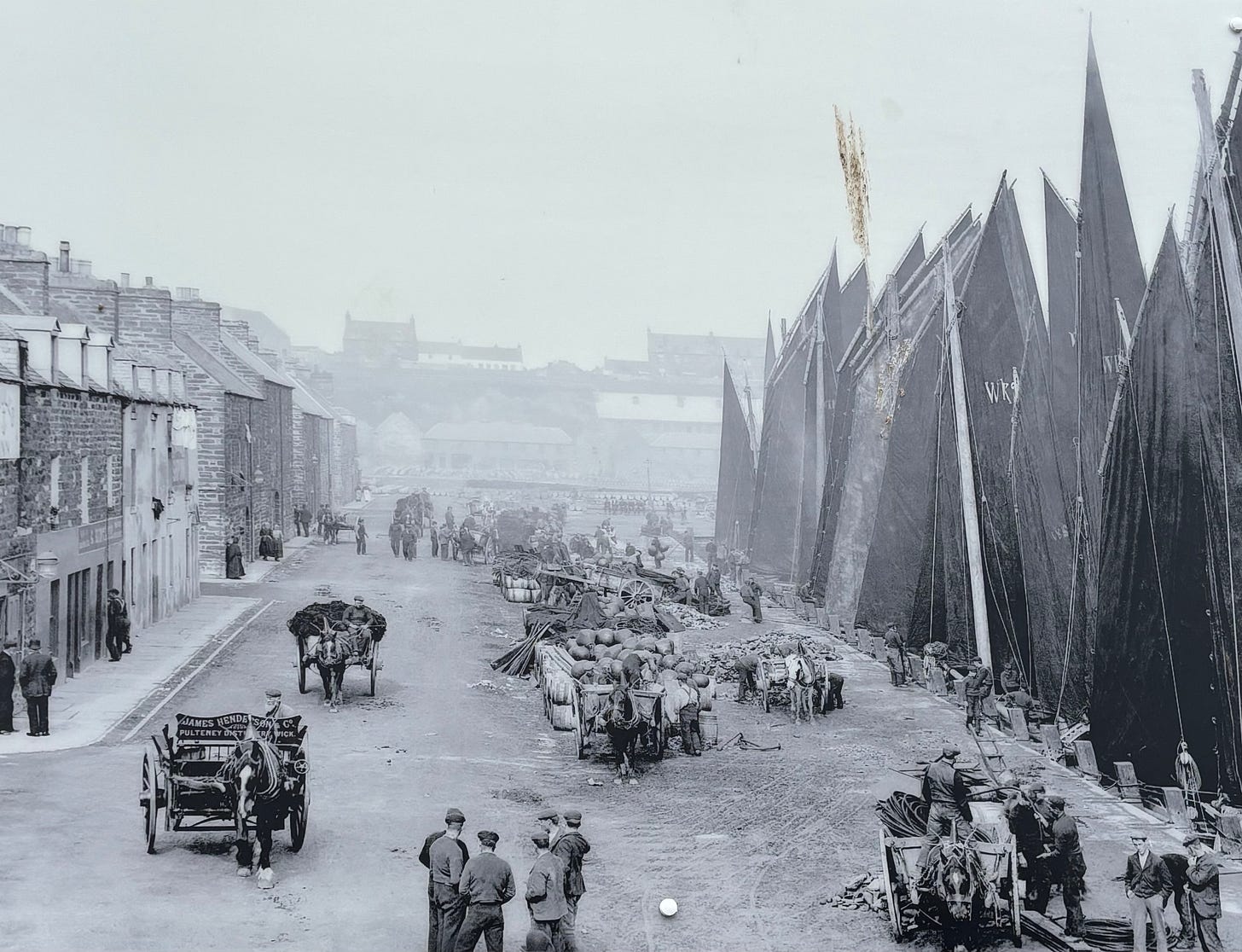Globalisation has shattered. What next?
My Prospect Magazine piece on Britain's historical role in globalisation, Stiglitz in London, and Scotland's Just Transition
Greetings dear, and loyal readers. Apologies for the radio silence. There are several reasons: I am working closely with the publisher on the intense editing stage of my book and trying to ensure that it acknowledges and incorporates the instability and insecurity wrought by Trump. The hope is to send it to bed before the end of May.
This week I’ve struggled over a presentation to the Progressive Economy Conference - UK Economic Policy in the Age of Trump - at University of London’s SOAS campus. We’ll debate UK economic policy and the massive challenges of this moment, including how progressive policy can meet the challenge of a collapsing world order…
When I work out what can meaningfully be said at this juncture of global insecurity and fragmentation I will share my contribution with you.
I have been with the Scottish government’s Just Transition Commission up in furthest and remotest Scotland, in magnificent Caithness. My route there included an overnight journey from London Euston to Inverness on the Caledonian Sleeper and then a glorious train journey from Inverness to Wick. For four and half hours we travelled along three of Scotland’s beautiful ‘firths’: the Beuley Firth, the Moray Firth and the Cromarty Firth.
On the last evening of our visit we ventured beyond John O’Groats to Dunnet Head, the most northerly point of mainland Britain. See if you can spot the Penguins.

We were in Caithness to visit the nuclear fast reactor experimental station, Dounereay, now in decommissioning mode; the University of the Highlands and islands which develops the skills of young people to prepare for work in the energy sector. We also visited the HQ of Beatrice, an 84 turbine offshore wind farm. Finally we had a ‘town hall’ meeting with local people, and listened to their views on Scotland’s plans for transitioning away from fossil fuels - perhaps the most interesting of the meetings we held there.
We were based in the town of Wick, Caithness, once Europe’s Herring capital…
… but with the herring stock devastated by over-fishing in the nineteenth century, Wick is now a shadow of its former bustling self. The population is caught between the high wages associated with nearby nuclear and both onshore and offshore wind energy companies - and the consequences of living in a place steadily deserted by young people and small businesses.
For many of Wick’s inhabitants the transition away from a carbon economy is not, and will not be just.
Also this week Professor Joseph Stiglitz, Nobel Laureate, visited London. Fresh off the Caledonian sleeper from Inverness I was privileged to be included in a small gathering of academics, investors and UN experts to discuss questions of international development and leadership and the forthcoming G20 Summit that is to be hosted by South Africa and will take place in Johannesburg. I used the opportunity to once again raise the question of whether the G20 could substitute the world’s reserve currency, the US dollar, with an African Clearing Union.
Prof. Stiglitz was hosted by the leading development economist, Professor Ha Joon Chang of SOAS university. Stiglitz delivered the DLD annual lecture that evening and promoted his new book: The Road to Freedom - Economics and the Good Society - a challenge to Friedrich Hayek’s The Road to Serfdom.
I’ll be drawing on some of his insights in my next post.
My Prospect piece
Finally, the above title is from my Prospect magazine piece. In it I argue that Britain’s 18th and 19th century economists played a key role in constructing the system we today call globalisation. Many use the term ‘neoliberalism’ but I would argue that the globalised financial system is an outgrowth of liberal ideas nurtured here in Britain.
The theoretical foundations of today’s economic system were laid in the late 18th century by Adam Smith and David Hume. They used the liberal idea imported from Spain and France - where liberal ideas had no connection to free market theory - to describe their favoured pre-political free market system. [1] In contrast, the British version—“Pax Britannica”— fused the political ideas of rule of law and civil liberties with the economic maxims of free trade and free markets.
This unique and ultimately revolutionary fusion of political and economic ideas was driven first by innovations in British monetary policy that aided investment abroad; and second, by sterling’s role as the world’s reserve currency. The growing prestige of the Bank of England, the military power of the state, coupled with the dynamism of the City of London helped power, protect and finance Britain’s 19th-century exporters.
I conclude that:
A new stable international order can only be achieved by ending inequality; by rebalancing economic and political power between capital and labour, between wealth and work, at home and abroad.
And we can’t rely on the American President to lead a Bretton Woods-style effort at cooperating and coordinating with allies to build a new more stable international world order.
More on that theme in my next post.
[1] See Alexander Zevin, 2021, Liberalism at Large: The World According to the Economist.










Excellent stuff! For anyone interested, I highly recommend today's PPF, where Dani Rodrik discusses hyper-globalism with David Ruciman, but this time through his trilema framing.
"See if you can spot the Penguins"
- I think I can make out some Puffins on top of the cliff there, Ann?
All very best solidarity wishes! 🐧🐧🐧🐧🐧